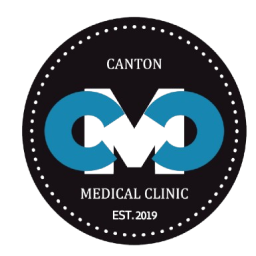The Importance of Specialized Care for Older Adults

As I reflect on the profound demographic shift we are experiencing, it becomes evident that specialized care for older adults has become more critical than ever before.

Introduction
As I reflect on the profound demographic shift we are experiencing, it becomes evident that specialized care for older adults has become more critical than ever before. The aging population presents unique challenges that require a comprehensive and compassionate approach.
Today, I want to share with you the vital significance of geriatric care and its role in addressing the challenges faced by older adults in our society.
The Aging Population and its Implications
It amazes me to witness the remarkable growth of the older adult population worldwide. The increasing number of individuals aged 65 and above brings with it a set of challenges that cannot be ignored. As our bodies age, our healthcare needs change, and we become more susceptible to chronic diseases and social isolation. Specialized care for older adults aims to tackle these challenges head-on by providing tailored services that meet their unique needs.
A Holistic Approach to Care for Older Adults
When it comes to caring for our beloved older adults, a holistic approach is crucial. It acknowledges the intricate interplay between physical, mental, and social well-being, ensuring that every aspect of their lives is considered. I have come to appreciate how this comprehensive approach leads to the best outcomes, fostering independence and enhancing their quality of life.
Let me walk you through some key components of this holistic approach to care for older adults:
- Comprehensive Assessment
Every individual is unique, and it is through a comprehensive assessment that we can truly understand their needs. By evaluating their medical conditions, cognitive abilities, functional limitations, medication management, nutritional status, and social support systems, we can identify the areas that require attention and develop personalized care plans. This assessment sets the stage for a targeted and effective approach to their well-being.
- Multidisciplinary Care Team
I firmly believe that collaboration is the key to success in providing specialized care for older adults. A multidisciplinary team of healthcare professionals, including physicians, nurses, social workers, and occupational therapists, work together to address the various aspects of an older adult’s health and well-being. This collaboration ensures a comprehensive and coordinated approach, tailored to the individual’s needs.
- Physical Health Management
The management of physical health is of paramount importance in specialized care for older adults. Regular health screenings, chronic condition management, pain relief, fall prevention strategies, and the promotion of healthy lifestyles through exercise, nutrition, and medication management all contribute to maintaining optimal physical health. By taking a proactive approach, we can prevent complications and help older adults thrive.
- Mental and Emotional Well-being
Addressing the mental and emotional well-being of older adults is just as crucial as managing their physical health. Depression, anxiety, and cognitive impairments such as dementia can significantly impact their quality of life. Therefore, specialized care emphasizes the importance of screening for these conditions and providing appropriate interventions such as counseling, cognitive stimulation, memory training, and psychosocial support. By nurturing their mental and emotional well-being, we can help older adults lead fulfilling lives.
- Social Engagement and Support
Loneliness and social isolation can take a toll on an older adult’s well-being. To counteract these challenges, specialized care encourages social connections and engagement. Activities such as community involvement, support groups, volunteer work, and maintaining relationships with loved ones can make a world of difference. By fostering a sense of belonging and purpose, we can combat social isolation and enhance the overall well-being of older adults.
- Caregiver Support
Recognizing the incredible role of caregivers in the lives of older adults is vital. Caregivers often face physical and emotional challenges, and providing them with support, education, and respite care is essential. Specialized care acknowledges the needs of caregivers and ensures they receive the assistance necessary to continue providing quality care while also caring for their well-being.
Conclusion
In conclusion, the importance of specialized care for older adults cannot be overstated. By adopting a holistic approach that encompasses physical, mental, and social aspects of aging, specialized care ensures that older adults receive comprehensive and personalized support. From comprehensive assessments and multidisciplinary care teams to the management of physical health, mental well-being, and social engagement, every aspect of their lives is considered. As the population continues to age, the significance of specialized care for older adults will only continue to grow, making it an essential aspect of healthcare systems worldwide.
Thank you for joining me on this journey of understanding the importance of specialized care for older adults. Let us continue to champion their well-being, celebrate their wisdom, and ensure they live their golden years with dignity and joy.
< Return to Blog